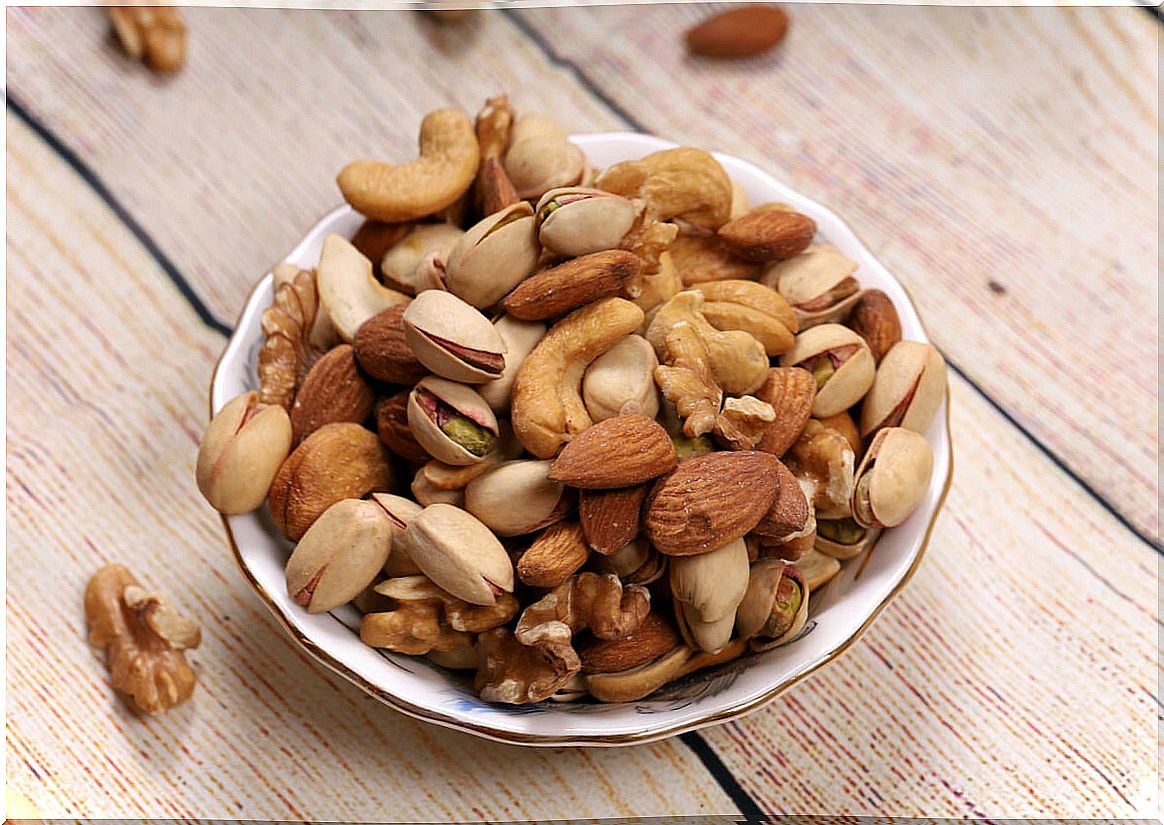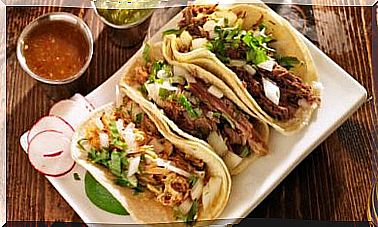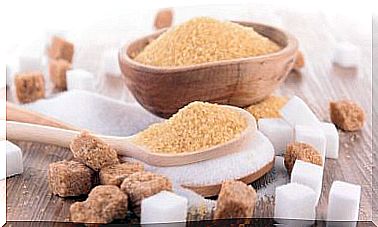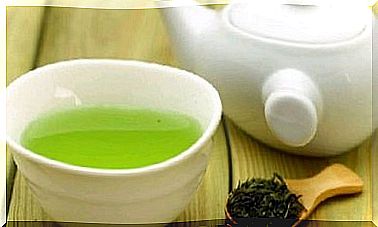Hypothyroidism: 8 Recommended Foods In Your Diet
Did you know that in the body we have a gland shaped like a butterfly called a thyroid? When it does not work well, diseases such as hypothyroidism appear. There are 8 recommended foods that cannot be missed in the daily diet if you suffer from this condition.
In the following space we highlight which are the nutrients and foods that intervene in their normal activity; In addition, we discuss those that are better to avoid. Finally, we leave an example of a weekly menu to guide the diet in a simple and complete way.
What is hypothyroidism?
Hypothyroidism is a disease that occurs when the thyroid gland does not secrete enough hormones. Consequently, a large part of the body’s functions begin to slow down. Some of the symptoms that may appear are the following:
- Feeling cold
- Fatigue and muscle weakness.
- Depression.
- Constipation.
- Weight gain.
- Joint pain and stiffness.
The treatment of this disease is always medical and consists of providing the body with the necessary amount of hormone. However, there are some aspects of the diet and the eating plan that you need to take into account, as they influence your normal function.

Specific nutrients in case of hypothyroidism
Some compounds are essential for the proper functioning of the gland. Sometimes it is necessary that they be present and in others, instead, they have to be avoided. Below we detail the most relevant ones.
Selenium
An adequate intake of this trace element increases the efficiency in the synthesis of thyroid hormones. But, in addition, selenium has an antioxidant activity that is necessary to protect the gland itself from damage that can be caused by free radicals.
Iron
In order to exert its effect correctly, selenium needs to find enough iron. Studies in animals and humans have detected that a deficiency of this affects the metabolism of thyroid hormone.
Zinc
Zinc is another of the micronutrients necessary for the thyroid gland. Their interaction is complex and affects both the functioning mechanisms and the action. Although zinc deficiency is not common, if you suffer from hypothyroidism it is important to ensure food sources in the diet.
Iodine
This nutrient, in just the right amount, is an essential component for the thyroid, since it participates in the formation of hormones. Its deficit is usually one of the main causes of hypothyroidism.One of the easiest ways to obtain it is by taking iodized salt, in a moderate way, since in supplements it could produce the opposite effect.
What is better to avoid?
Some nutrients can be harmful in hypothyroidism. Goitrogens are the ones to watch especially for, since they interact with iodine. They are found in foods derived from soybeans, in vegetables of the cruciferous family (broccoli, Brussels sprouts, kale, etc.), in cassava and in millet.
Hypothyroidism: the 8 recommended foods in the diet
As we have seen, diet improves the health of people with thyroid gland problems. It is necessary that the foods present provide the necessary nutrients for its proper functioning. The most recommended are summarized in the following list:
- Iodized salt: the best way to cover the minimum needs of iodine in the diet.
- Nuts: like Brazil nuts, which contain both selenium and zinc. Also other nuts such as almonds, hazelnuts, cashews or pistachios.
- Fish and seafood assorted.
- Eggs: they are a good source of protein, which also provide Y ear and selenium.
- Dairy: as the main sources of calcium.
- Whole grains: whole grain rice, quinoa or buckwheat and their derivatives (such as pasta or bread). It is advisable to follow a gluten-free diet, as it seems that there is a relationship between the two conditions (hypothyroidism and celiac disease).
- Fruits: all varieties are allowed. The recommendations are the same as for the general population, that is, 3 pieces a day.
- Assorted fresh vegetables and greens: such as tomato, lettuce, carrot, chard, leeks, zucchini, etc. They can be chosen freely, except those not recommended.
As we already discussed, there are foods that interfere with the normal functioning of the gland and the secretion of hormones. Therefore, they are harmful and must be avoided. Some of them are soybeans, broccoli or cereals with gluten.

Food and hypothyroidism: sample weekly menu
Considering the eating guidelines in case of hypothyroidism, as well as the recommended foods, we offer below a one-week eating plan.
It should be noted that it is an orientation guide and it is necessary to adapt it to the needs of each person and their personal situation. The ideal thing is to consult the nutritionist.
Monday
- Quinoa flakes with strawberries and almonds.
- Rice and vegetables wok with chicken.
- Salad with tuna and omelette.
Tuesday
- Toast with fresh cheese and tomato.
- Zucchini and salmon cream with quinoa.
- Hummus with vegetables and bread.
Wednesday
- Scrambled eggs with cherry tomatoes and mushrooms.
- Baked vegetables with potato and grilled rabbit.
- Gazpacho and pasta salad with prawns and ham.
Thursday
- Buckwheat flakes with Brazil nuts and blueberries.
- Buckwheat and lentil salad.
- Chicken curry with rice and vegetables.
Friday
- Toast with avocado and tomato.
- Pumpkin and sea bass cream baked with potato.
- Scrambled eggs with salad.
Saturday
- Porridge with apple and cinnamon.
- Spinach with raisins and pine nuts and chickpeas.
- Vegetable salad and hamburger.
Sunday
- Toast with cheese and ham.
- Seafood paella.
- Salad and omelette.
It is necessary to add a natural yogurt or a piece of fruit for dessert. They can also be eaten mid-morning or mid-afternoon, alternating with a handful of nuts, dehydrated fruits or rolled oats.
What to remember about food and hypothyroidism?
In case of hypothyroidism, it is necessary to know how to choose food. While some are healthy, others can lead to complications. In general, it is recommended to increase the consumption of nuts, eggs, fish, whole grains and other options that provide adequate nutrients for the thyroid gland.
In any case, the ideal thing is to obtain an eating plan from the hand of a nutritionist, since each case has its peculiarities. The professional can also provide guidance on how to prepare healthy dishes every day.









